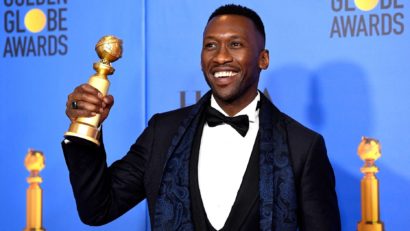Controversy aside, ‘Green Book’ is a film worth seeing
by Heather Robinson

From Fox News

Despite this week’s controversy swirling around the personal lives of some of its creators, “Green Book” remains among the year’s best films, and worth seeing for its essential message.
Last Sunday the film took several awards at the Golden Globes, including three wins for best supporting actor, best screenplay, and best motion picture, musical or comedy.
The film, which takes its name from “The Negro Motorist Green Book,” a guide by postal worker Victor Hugo Green to advise fellow African-Americans on how to travel safely in the segregated South, has received mixed reviews from American critics, some of whom feel it oversimplifies or glosses over racial issues. But clearly the international press, which comprises the Hollywood Foreign Press Association and chooses who wins the Golden Globes, sees the film as something special.
“Green Book” tells the story of a real-life friendship between Tony “Lip” Vallelonga, a white, Italian-American bouncer from Brooklyn, played by Viggo Mortensen, and Dr. Don Shirley, a brilliant black jazz musician, played by Mahershala Ali, as they traverse the racially segregated American South in the early ‘60’s.
There’s an old adage: “A stranger comes a while, and sees a mile,” meaning that sometimes people can’t clearly see for themselves, or possible solutions to their problems, while a stranger who comes with fresh eyes can see at a glance.
Could it be that some Americans are missing something foreign critics – who are perhaps not so immersed as some Americans in identity politics – can see more clearly?
Namely: as we hunker down in our respective tribes, too often we neglect to connect as human beings.
America in 2019 is a place of political correctness, of marches and banners, of hundreds of thousands assembled to push back “against hate” – and few real conversations that involve deeply listening to anyone on the other side of complex issues.
Instead, we flatter ourselves that we are politically engaged by inciting social media scraps with people we don’t actually speak with, and whose hands we will never clasp.
According to a 2015 study by Pew Research Center, only one in 10 American adults said they have “a lot in common” with those who do not share their own racial background.
Now, there’s a difference between acquaintanceship and authentic friendship; saying hello to an African-American barista at Starbucks or waving to a Jewish neighbor doesn’t automatically inoculate you from being prejudiced. But real friendship can help overcome prejudice.
In an early scene in “Green Book,” Vallelonga’s character is shown as so racist he throws away two glasses because they’d been used by black workers making repairs to his kitchen.
By the end of the film (spoiler alert), after he and Shirley have confronted challenges, shared secrets, and leaned on one another in various ways, he welcomes his friend to break bread with his family.
This Christmas scene and many developments leading up to it illustrate the difference between acquaintanceship and friendship. With the former, prejudice can more easily be hidden. But when you share life struggles, when you confide in each other and break bread together, you become friends.
Because true friendship requires respect, and the recognition of each other as equals, it is the antithesis of prejudice.
Some critics have pointed out that “Green Book,” which was co-written by the real-life Vallelonga’s son Nick, is told more from the white character’s point of view. Others criticize the film as a feel-good trifle that does nothing to challenge societal inequities that promote racism and division.
Experts in the field of race say that, while we should be cautious about the potential for oversimplification, “Green Book” has value as an opportunity to open dialogue.
“We can get caught up in the controversy about whether the film is an account of the white man’s view of the friendship, which it is, and whether the story would have been different had Shirley told it, which it would have,” said Dr. Henry Louis Taylor, Jr., professor of history and urban and regional planning at SUNY Buffalo, who specializes in the black experience in the U.S. “But that doesn’t matter as much as the larger question, ‘What is the place of individual friendship within the process of social change?’”
“Friendship makes empathy possible, so it can be a gateway to understanding each other, and a film like this can illustrate this truth,” said Thembi Dube, a Manhattan financial analyst who was born in Durban, South Africa and whose late father, Dr. Fred Dube, a professor of psychology and expert on racism, fought apartheid. “The men in this story grew to be friends and commonalities emerged. That basis in personal respect made the knowing, and the growing, possible.”
Full disclosure: Thembi Dube is my friend, we hold different political views, and an exercise in deep listening and respectful conversation inspired this column.
This entry was written by Heather Robinson and posted on July 25, 2019 at 1:02 am and filed under Commentary. permalink. Follow any comments here with the RSS feed for this post. Keywords: . Post a comment or leave a trackback: Trackback URL. */?>



